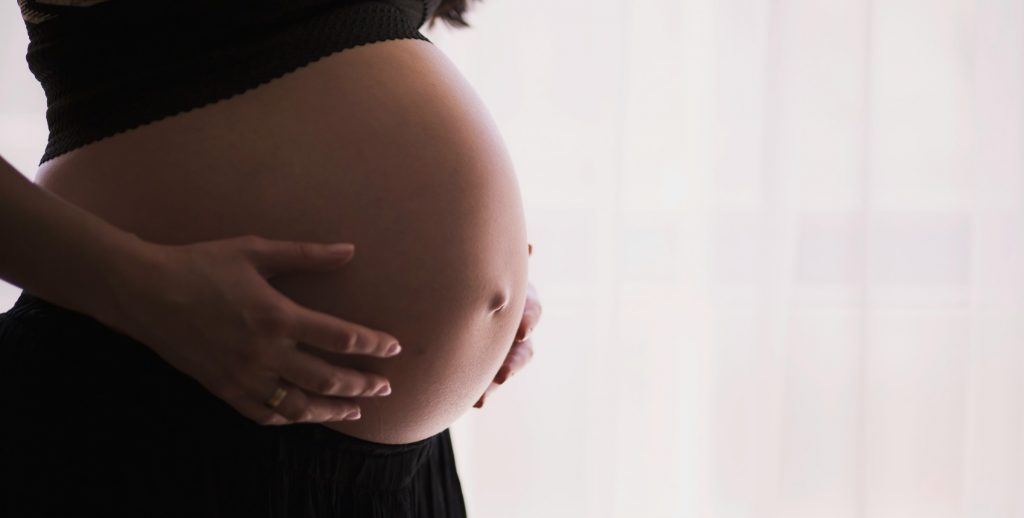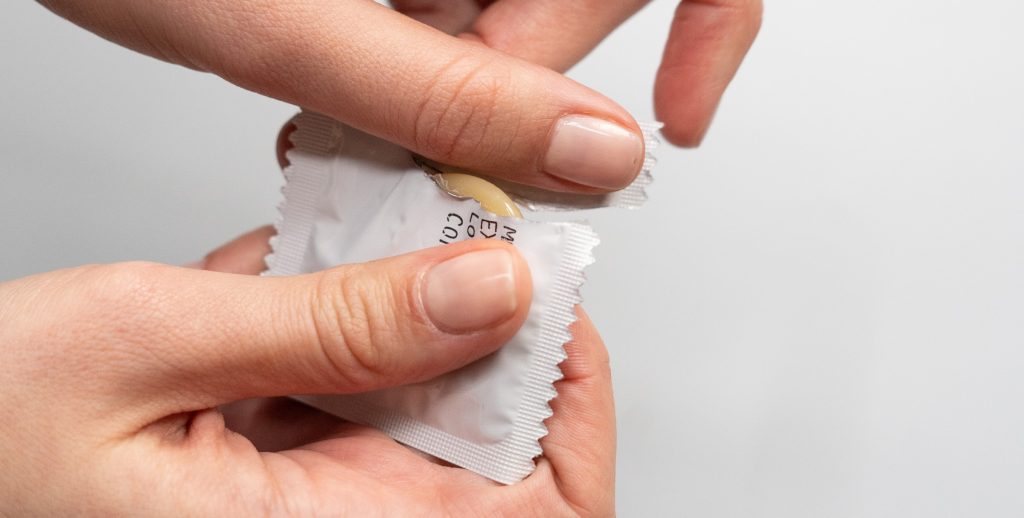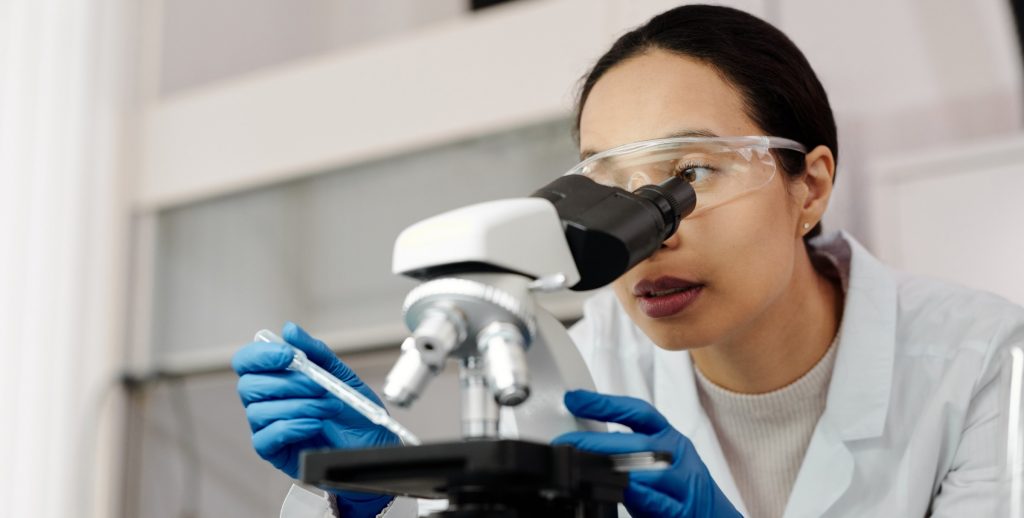Can HPV affect fertility?
Conceiving can be very difficult for many individuals and couples. There are all sorts of conditions and lifestyle choices that can hinder one’s ability to get pregnant.
Sexually transmitted infections (STIs) can seriously affect your fertility. But there is one infection that not many people may consider a serious concern for fertility issues.
A lot of research has been conducted in recent years around the effect HPV can have on fertility. Should you be worried?
Keep reading to find out.

HPV is the most common STI in the world. If you think you have genital warts, or an HPV infection, test yourself at home with Better2Know’s HPV Home Test Kit.
What is HPV?
If you want to understand how HPV can affect your fertility, you need to understand what it is.
The Human Papillomavirus (HPV) is a virus that typically passes between people through sexual contact. While the primary modes of transmission are through vaginal, anal, and oral sex, it’s also possible to contract HPV through skin-to-skin contact, such as by touching a sexual partner’s genitals during foreplay.
HPV is the most common STI in the world because it so easily passes from one person to another. Indeed, most people in their lifetime will contract some form of HPV. In most cases, these infections are harmless, and are cleared by the immune system without producing any symptoms. It would be correct to say that having HPV is practically a normal part of being human.
However, there are instances where HPV can cause symptoms (we notice something on our bodies) or other health problems without symptoms.
The most common symptom that people experience of HPV is genital warts – small, fleshy protuberances that can appear on the genitals or around the groin area. They vary in colour based on skin tone and don’t produce adverse sensations like itching or burning.
In some very rare cases, genital warts can grow to such a size that they can make sexual intercourse or childbirth more difficult.
But for the most part, genital warts are fairly benign to the people who experience them. They do not threaten your health if they are unsightly, and they can be removed with topical creams, freezing, or surgery. But most cases of genital warts disappear on their own after about six months to two years.
Warts produced by HPV are typically caused by the benign strains of the virus. But there are other strains of HPV which can be more problematic because of their links to certain cancers.
14 high risk strains of HPV, in particular HPV 16 and HPV 18, are responsible for 3% of cancers in women and 2% of cancers in men. High risk HPV is responsible for 99% of cervical cancers and 60% of penile cancers. The virus can also cause other cancers in the head and neck. However, just like “wart” strains, the usual situation is that your body will expel the virus on its own after a few years without developing into cancer. It is a small minority who are at risk of more serious complications.
But the HPV virus, it seems, isn’t satisfied with just causing warts and cancers…
Can HPV affect fertility?
While it is widely accepted that STIs like Chlamydia and Gonorrhoea can have adverse effects on fertility (including causing Pelvic Inflammatory Disease in women and epididymitis in men), less data has been collected about the effects HPV may have on people trying to get pregnant.
However, with more public awareness of the virus’s effects on overall health, more attention is being given to this virus. And several studies released in the last few years paint a complex picture of what effects this virus can have on fertility.
Fertility in women
Many women, no doubt concerned by the well-known links of HPV to cervical cancer, are concerned about what effect the virus may have on their fertility. While there is no association between HPV vaccination and infertility, some studies suggest that having certain strains of HPV may reduce fertility rates in women.
One study conducted in 2015 found that the presence of certain strains of HPV may make it more difficult for an embryo to implant itself in the wall of the womb or uterus. HPV infections may also damage the embryo itself.
Another study published in The Journal of Infectious Diseases in 2020 found a significant correlation between HPV infections and preterm births and preterm premature rupture of membranes. Infection was also associated with intrauterine growth restriction, low birth weight, and fetal death. There is also a link between cervical HPV infections and pregnancy loss.
Of course, cervical cancer treatment themselves can also affect a woman’s ability to conceive. Many treatments for cervical cancer involve a hysterectomy (a removal of the womb). Radiotherapy treatments for cervical cancer can also negatively affect the womb and the ovaries. Some treatments for early cervical cancer, though, can leave fertility relatively unaffected, such as cone biopsies or radical trachelectomies.
Despite all this, however, it’s vital to stress that more research is needed in this area, and very few definitive conclusions have been reached about how HPV can affect fertility in women.
Fertility in men
Because of years of messaging about the dangers HPV can have on the health of women, many men may not be that concerned about the effects HPV can have on their health. However, there is significant data to associate male infertility with HPV infection.
Many studies suggest that HPV infections can negatively affect sperm quality, making insemination less likely. This virus can bind to the head of the sperm, decreasing the quality of mobility. Men with fertility issues are 3-4 times more likely to have HPV. Particular strains of HPV were correlated with male fertility issues, most notably (in descending order) HPV 45, 16, 52, 18, 59, and 13. (It must be stressed that this is an association and not a causal link.)
However, like with issues of fertility in women, more research is needed to further establish the connection between HPV infections and male fertility.

Are you worried about STIs? Get tested at a sexual health clinic near you.
Will HPV be passed on to the infant during pregnancy or childbirth?
If you are pregnant and you have HPV, you may pass it on to your baby during childbirth or pregnancy. However, most babies that contract HPV in the womb will clear the infection without incident. In very rare cases, HPV may cause genital warts in the baby, which can be removed with surgery.
Will getting vaccinated for HPV affect my fertility?
As stated above, there is no link between HPV vaccination and infertility.
In fact, vaccination may increase the likelihood of conception for many couples as the vaccine provides effective protection against strains of HPV that have been linked to cancer and infertility.
How can I avoid getting HPV?
The best way to avoid getting HPV in the first place is to get the HPV vaccine. Doing so will protect you against some high risk strains. It may also provide protection against other low risk strains that can cause genital warts and are connected to infertility.
The vaccine is routinely offered to girls who have not started their sex lives, and in some countries it is offered to boys as well. However, the vaccine is still effective in people who have already started to have sex, and affords some protection up to the age of 30. Therefore, you do not need to be a teenager to get vaccinated.
The next best way to avoid getting HPV is to practice safe sex. This involves using barrier methods like condoms and dental dams when engaging in sexual activity. You may also want to consider limiting your sexual partners in order to reduce your level of exposure.
Because HPV is so common, all countries have national guidelines about monitoring HPV. Women over 30, and those who have changed partners should have a smear test done and check their HPV status. Any positive results will be followed up carefully to make sure there are no consequences of having the virus.
However, it’s important to note that most people will get some form of HPV throughout their lives, and most infections are completely harmless and are cleared by the immune system without incident.
What other STIs can cause infertility?
If you want to protect your sexual health and fertility, you should also take measures to protect yourself from other STIs, too. STIs that can negatively affect your fertility include:
You can avoid getting these infections and protect your fertility by practising safe sex and getting tested regularly for STIs if you’re sexually active.
Final thoughts
HPV has been linked to certain types of infertility. To protect yourself, get vaccinated, get regular PAP smears, and practice safe sex.
Don’t leave your sexual health to chance. Getting tested and treated for STIs early can help you maintain your fertility and avoid the worst effects of an infection.
If you’re concerned about STIs, get in touch with Better2Know today. Our comprehensive range of STI tests will give you the best possible view of your sexual health.

For a comprehensive view of your sexual health, take advantage of Better2Know’s Full Screen, which tests for the UK’s 7 most common STIs.
This article has been medically reviewed by Dr. Steve Chapman, 29/07/2024.
Categories
- Awards
- Bacterial Vaginosis
- Blood Tests
- Cardiovascular Health
- Cervical Cancer
- Chlamydia
- Condoms
- Covid-19
- Gardnerella
- Genital Warts
- Gonorrhoea
- Health and Wellness
- Hepatitis A
- Hepatitis B
- Hepatitis C
- Herpes
- HIV
- HIV (AIDS)
- Home Testing
- HPV
- Instant Testing
- MSM
- Mycoplasma
- News
- Non-Specific Urethritis
- PAP Smear
- Pre-Pregnancy
- Sexual Health
- STD Symptoms
- STD Tests and Screens
- STI Transmission
- Stigma
- STIs
- Swab Tests
- Syphilis
- Trichomonas
- Ureaplasma
- WSW
- Zika




